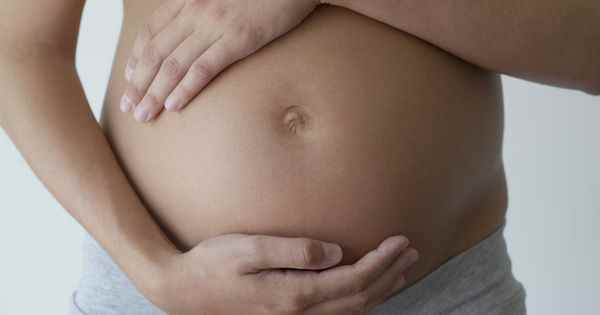Posted on 05/21/2021
3 min read
On the occasion of the world day against pre-eclampsia, the association Grossesse Santé publishes the results of a survey of 1000 women which reveal that mothers have had to live through difficult psychological episodes.
A disease that affects around 15,000 mothers per year in France, pre-eclampsia is a syndrome due to poor anchoring of the placenta. It associates high blood pressure and the abnormal appearance of protein in the urine.
2% of pregnancies are affected by this condition which occurs between the 5th month and the 9th month of maternity. In some cases, it can lead to serious complications such as HELLP syndrome (liver damage) and even lead to the death of the mother and / or her child.
Often minimized by those around them and the medical profession, mothers who have suffered from pre-eclampsia nonetheless experience a real psychological impact and suffer from hearing sentences such as “Madam, pull yourself together”. The survey carried out by theassociation Pregnancy Health on the occasion of the world day against pre-eclampsia which takes place on May 22, 2021 reveals how women have experienced their journey as a real ordeal combining stress, anxiety and guilt.
Complications caused by pre-eclampsia
On the mother’s side, almost half (43%) of the women questioned declared having developed Hellp syndrome, a pathology that multiplies by 3 or 4 the risk of death in utero. 22% of mothers stayed in intensive care for 24 hours or more and 16% had eclampsia (convulsive attacks caused by intracranial hypertension), 11% a retro-placental hematoma and almost 9% had renal failure. In total, 25% of preeclampsia give rise to serious complications).
Babies also suffer from complications with in 43% of cases growth retardation in utero, but more spectacular still 6% of births were premature. 49% of infants required neonatal intensive care and 13% of mothers declared the baby dead.
Only 19% were lucky that their baby had no complications.
Track your pregnancy week after week
A significant psychological impact
During their pregnancy, the mothers had to live very anxious moments which did not leave them after the childbirth. Pregnant, 87% felt fear and anguish, 85% a feeling of helplessness, loss of control, 76% of guilt while a few days after giving birth, they are still 81% to feel fear and 85% anxiety, whether or not they had complications related to preeclampsia.
This feeling of anguish is still alive a few months after the birth of the child: 96% of mothers unintentionally rethink the events, 64% sometimes have the feeling of reliving this event, 78% have the feeling of having escaped from shortly after death, 54% had nightmares following childbirth. More than half of them (51%) have difficulty connecting with their daily lives and carrying out the tasks of daily living, working, taking care of their babies, their other children and this feeling has lasted from a few months to over a year in 78% of cases.
The responses to the survey are unequivocal: mothers have had to live through difficult psychological moments with 49% of them to express “sadness and withdrawal”, 20% indicated to have suffered from appetite disorders, 10% of suicidal ideation and evoke great distress in relation to their child: 69% feel“very guilty”, 54% are very anxious about their child’s state of health, and 25% feel“unable to care for their child”. “Clinical signs may be indicative of postpartum depression”Indicate the conclusions of the investigation.
Support deemed insufficient
Almost half (44%) of mothers said they had had an interview or two with a psychologist, but they felt that their usefulness was limited (48%), for the association Grossesse Santé “cThe interviews come very soon after the shock: the mothers might not have had the time to take the necessary distance to take advantage of them, still in awe of the event. His psychological integration takes time and would require more sustained follow-up.”.
These mothers then turn to social networks (61%) to read other testimonials and feel supported, they also indicate writing and sharing their story for 26% of them.
30% decide to engage in personal therapy considering that “partners, family or friends do not know, or cannot listen to or support them as they would like”And that the medical world does not hear them enough (35%).
.
dts3
